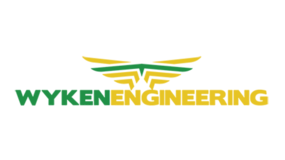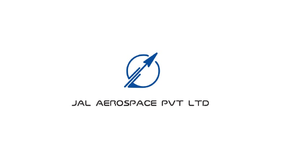Sustainability
With major aircraft and aero engine manufacturers making big commitments around achieving net-zero greenhouse gas emissions by 2050, the MAA is committed to supporting aerospace supply chain companies with meeting these important ambitions.
DECARBONISING THE MIDLANDS AEROSPACE CLUSTER
The Decarbonising the Midlands Aerospace Cluster project is the latest MAA sustainability initiative. Taking a bottom-up approach, the project involves a small sample of manufacturing companies from several tiers of the supply chain that are working together with the delivery team. This pilot group are exploring practical ways that aerospace could be decarbonised by 2050.
The DMAC project is one of twelve that received funding from the UK Government Department for Energy Security and Net Zero (DESNZ) Local Industrial Decarbonisation Plans programme, as part of a £6 million initiative to encourage industrial clusters to develop decarbonisation plans. DMAC is also being supported by Innovate UK.
The aim
- Accelerate the supply chain's maturity in emissions reduction and reporting.
- Prepare the supply chain for customer requirements and regulation changes such as the Carbon Border Adjustment Mechanism (CBAM).
- Outline a decarbonisation strategy for the region including energy requirements, comparing two alternative scenarios to replace natural gas: 1) Electrify wherever possible, and 2) green electric/hydrogen mix.
In addition, the project aims to not only develop a blueprint for decarbonising dispersed aerospace sites in the Midlands but one that could be used as a practical example for other regions and high value manufacturing sectors to follow too.
The partners
The MAA has partnered with six leading Midlands aerospace suppliers to deliver the DMAC project. ITP Aero and Collins Aerospace are the Tier 1 aerospace companies that will directly support the programme, ensuring that the Midlands approach aligns to the needs of the global aerospace sector and their customers. Together with SMEs Arrowsmith (part of ASG Group), G&O Springs, Technoset and Helix, the team will provide the baseline data for scope 1, 2 and 3 emissions.* All companies involved will also support subsequent work packages to develop the strategy to achieve net zero business operations by 2050.
The approach
The DMAC project is taking a comprehensive approach to the complex challenge of exploring how the aerospace supply chain could be decarbonised. There are many bodies talking about why net zero is required, talking both strategically and theoretically about this challenge. However, the DMAC project aims to take on the tougher job of working with industry partners to figure out tangible ways of addressing the challenge and coming up with a detailed blueprint that can be implemented.
- Mapping emissions: At the beginning of the project, metal and electro-magnetic emissions were mapped using both a survey and data collected about the supply chain.
- Decarbonisation strategy development: Taking into consideration insights from across the region and every tier of the aerospace supply chain, the strategy for decarbonising energy supply across the industry in the Midlands is being developed. It includes assumptions regarding infrastructure development timescales and the implications of slow action.
- Assisting the supply chain practically: Working with industry partners, the project is assisting the supply chain in several areas that are critical to decarbonisation including:
- Reducing costs and reducing/eliminating sources of greenhouse gas emissions by 1) Sharing proven solutions and lessons learned from working with the DMAC consortium, 2) Identifying barriers, for example to on-site storage and connecting local generation to grid; and 3) Seeking solutions.
- Testing out approaches to site emissions reporting and also reporting emissions (broken down by individual products)
- Preparing for key supplier requirements: The DMAC project is helping suppliers prepare for emissions reporting, trading legislation and customer requirements. This includes helping them identify what is necessary and the steps they may need to take.
- Knowledge sharing: Workshops and events are being held throughout the project to share learnings and support collaboration. This allows inputs from participants to be considered as the team are developing their plans and approaches, increasing the level of collaboration.
- Stakeholder engagement: The project team are engaging with policy makers and infrastructure providers to coordinate on the future development of power networks, support for sustainability work, and emissions trading schemes.
The impact
- Supply chain receives important insights to aid decarbonisation: The DMAC project will lead to an important body of knowledge to use in advising MAA members and aerospace supply chain companies on sustainability. The knowledge will also be applicable across other high-value manufacturing industries. Given the success of the project, we anticipate that the MAA may receive further funding to support sustainability initiatives for other areas of aerospace manufacturing and across sectors. We may also be able to make important contributions to research projects with other key industry bodies.
- Opportunity for MAA members to gain competitive advantage: MAA members will get early briefings on industry requirements on emissions reporting and have the chance to accelerate their decarbonisation strategies through discussions with our Technology Managers at events and training workshops. Being more prepared than competitors when bidding or dealing with new legislation can also help to open up new opportunities with customers and also avoid negative financial impacts.
- Aerospace supply voice shared with energy policymakers: Regional bodies such as the West Midlands Combined Authority (WMCA) are already benefiting from our inputs to energy strategy. Underpinning the resilience of aerospace regionally is of benefit to the local economy. DESNZ and energy networks benefit from concrete data on energy infrastructure needs to support network planning and increased confidence of delivering against net zero targets.






